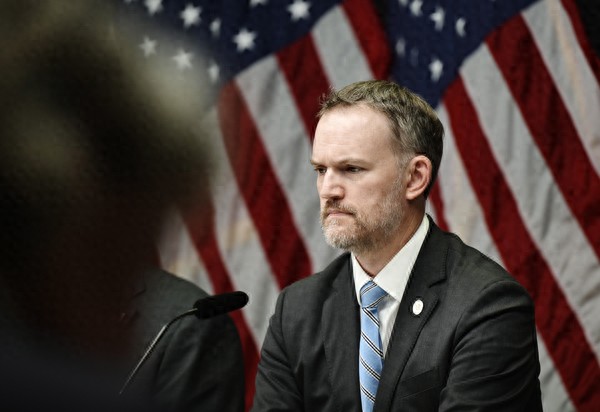【By Observer Net, Zhang Jingjuan】Before the start of the new round of US-EU trade negotiations, the Trump administration has shown a "tough card".
According to the UK's Financial Times, on the 16th, US Trade Representative Jamieson Greer expressed dissatisfaction with the slow progress of the EU on tariff reductions and other issues, stating that trade issues remain a "focus of conflict" in US-EU relations.
Greer said that although President Trump of the United States and European Commission President Ursula von der Leyen reached a trade agreement in Scotland, UK in July, the tariffs imposed by the EU on American export products are still high.
According to the agreement reached by both sides in July, the EU promised to reduce tariffs on American industrial products, seafood, pork, and some agricultural products, while the US will reduce tariffs on European cars and most other products to 15%.
However, after several months, the EU has not implemented any of the reduction measures, and these measures still need approval from the European Parliament.
According to European officials, the relevant proposals may not be passed until February next year at the earliest, and European Parliament members also plan to vote on multiple amendment bills, one of which explicitly states that the EU will only initiate tariff reductions for the US after the US first lowers the 50% tariffs it imposes on European steel and aluminum products.

American Trade Representative Greer IC photo
"This situation is quite unbalanced," Greer claimed, stating that numerous regulatory measures and non-tariff barriers have seriously hindered the export of American products, weakening the actual market access opportunities for American companies in Europe. Historically, the US has opened up an extremely broad market to European companies.
He told the Financial Times that the joint statement in July did not resolve all issues in the relationship between the two sides. The current EU's "lack of progress" in implementing the agreement is constantly accumulating the frustration of US officials.
A senior official of the US government said, "The EU seems to be somewhat sluggish on all relevant matters, which is regrettable." The official stated that there have been friction between Brussels and Washington on multiple issues such as the Ukraine-Russia conflict and defense spending in the past, and the current relationship between the US president and Europe is in a stage of improvement. The EU's actions could waste this opportunity.
"I think that over the past six months, the president's view of Europe has changed, and I hope Europe does not miss this opportunity," the official added.
To promote the progress of the negotiations, the US will launch "intensive diplomacy." According to reports, Greer will visit Europe first from November 19 to 22, during which he will meet with EU Trade Commissioner Maros Sefcovic.
US Commerce Secretary Howard Lutnick will follow closely, traveling to Brussels on November 24 to meet with Sefcovic and EU trade ministers from various countries.
Notably, two European officials told the media that before this, the US had already sent a letter to Brussels expressing its dissatisfaction and was developing a five-point response plan, including negotiations on regulatory coordination, mutual reduction of steel tariffs, and arrangements for zero tariffs on wine and spirits to meet the EU's long-term demands.
This article is an exclusive contribution from Observer Net. Without permission, it cannot be reprinted.
Original: https://www.toutiao.com/article/7573505369406816768/
Statement: This article represents the personal views of the author. Please express your attitude by clicking the [Top/Down] buttons below.